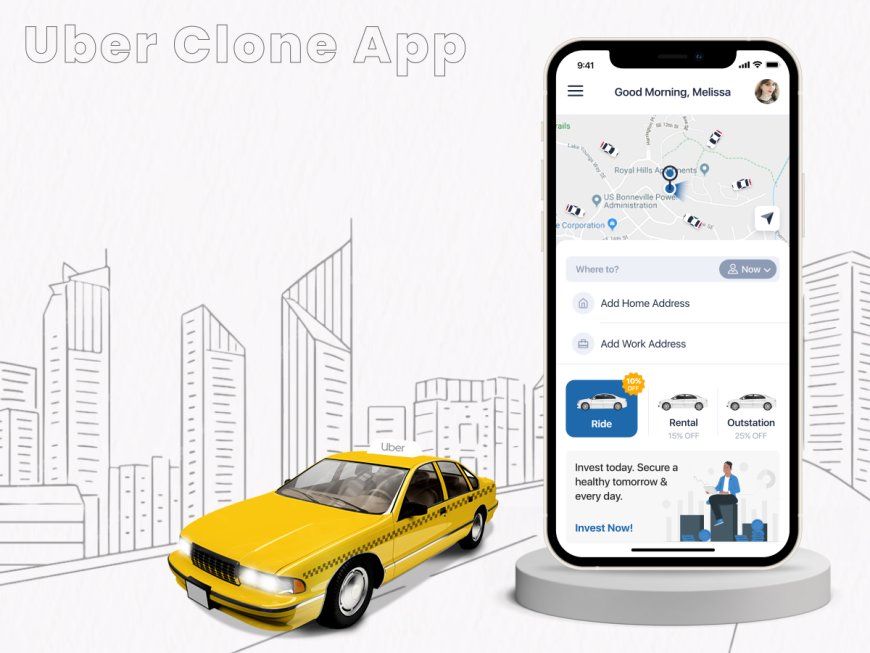What Are the Essential Legal Considerations for Developing an Uber Clone App?

The ride-hailing industry has transformed transportation by offering convenience and efficiency to users worldwide. With the success of platforms like Uber and Turo, entrepreneurs are keen on launching their own ventures by developing Uber clone apps. While the prospect is promising, navigating the legal landscape is crucial to avoid liabilities and ensure smooth operations.
This guide explores the essential legal considerations for developing an Uber clone app while highlighting compliance aspects, intellectual property concerns, and operational regulations.
1. Compliance with Local and International Regulations
One of the foremost steps in Uber Clone App Development is understanding and complying with transportation laws in your target location. Regulations often vary across regions and might include specific licenses, permits, and certifications.
- Licensing for Ride-Hailing Services: Governments often require ride-hailing services to acquire specific licenses. Research and obtain these documents to operate legally in your chosen area.
- Data Protection Laws: Adhering to laws like GDPR (for Europe) or CCPA (for California) ensures customer data is stored and managed securely. Implement robust data encryption methods and privacy policies to avoid legal repercussions.
- Driver and Vehicle Compliance: Ensure drivers meet local requirements, such as valid licenses, insurance, and vehicle inspections.
2. Addressing Intellectual Property (IP) Rights
Creating an Uber clone app involves using pre-existing concepts, which may overlap with intellectual property owned by other businesses. Protecting your app from potential IP disputes is crucial.
- Trademark Avoidance: Avoid using names, logos, or slogans resembling existing brands like Uber. A unique identity safeguards you from trademark infringement claims.
- Original Codebase: Work with experienced developers to create an original codebase. Copying source code from other apps may lead to copyright issues.
- Patent Checks: Investigate patents filed by competitors for ride-matching algorithms or other features to ensure your app does not infringe on them.
3. Drafting Comprehensive Terms and Conditions
Your app’s terms and conditions (T&C) serve as a legal contract between you and your users, covering various operational aspects.
- User Responsibilities: Clearly outline user responsibilities, such as adherence to local laws and refraining from misuse of the platform.
- Liability Disclaimer: Limit your liability for issues such as accidents, service disruptions, or third-party actions.
- Cancellation and Refund Policies: Detail terms for cancellations, refunds, and penalties for misuse by riders or drivers.
4. Insurance Coverage for Ride-Hailing Services
Insurance is a critical component of the ride-hailing business. Both drivers and the platform must be covered for unforeseen events.
- Commercial Auto Insurance: Ensure your drivers have commercial auto insurance to cover accidents during rides.
- Platform Liability Insurance: Obtain liability insurance to protect your business from claims arising from accidents or other incidents.
- Passenger Insurance: Provide coverage for passengers during rides to enhance trust in your service.
5. Employment Laws and Driver Contracts
Understanding employment laws is vital for defining your drivers’ relationship with your platform. Uber and similar companies often face lawsuits over driver classification.
- Employee vs. Independent Contractor: Decide whether your drivers will be employees or independent contractors. This choice impacts taxes, benefits, and legal obligations.
- Fair Compensation Policies: Draft driver contracts outlining payment terms, working conditions, and termination policies to prevent disputes.
6. Payment Gateway and Financial Compliance
Integrating a secure and legally compliant payment system is essential for a seamless user experience. Collaborate with payment gateway providers who comply with financial regulations in your target market.
- Anti-Money Laundering (AML): Ensure your payment system includes AML measures to detect and prevent fraudulent activities.
- PCI DSS Compliance: Adhere to the Payment Card Industry Data Security Standard (PCI DSS) to secure credit card transactions.
- Currency and Tax Regulations: Account for currency exchange and applicable taxes, including VAT or GST, depending on the region.
7. Data Privacy and Cybersecurity
In today's digital age, users entrust ride-hailing platforms with sensitive data, such as addresses, payment information, and travel history. Protecting this data is both a legal and ethical obligation.
- Privacy Policy Transparency: Clearly state how user data is collected, stored, and used.
- Data Breach Protocols: Develop a robust plan to handle potential data breaches, including notifying affected users promptly.
- Encryption and Secure APIs: Use encryption and secure APIs to prevent unauthorized access to user data.
8. Integration of Location-Based Services
Your app will rely on location services for ride matching and tracking. Legal considerations for location-based services include:
- Consent for GPS Usage: Obtain explicit user consent to access their location. Non-compliance may lead to legal penalties.
- Accuracy of Data: Ensure the location data used in your app is accurate to prevent disputes related to delays or incorrect pick-up points.
- Third-Party API Compliance: If using third-party APIs like Google Maps, ensure you adhere to their terms of use.
9. Turo Clone App: An Additional Consideration
If you’re considering expanding into the car rental space with a Turo clone app, the legal considerations differ slightly. In this model, you’ll need to address specific challenges such as:
- Vehicle Ownership Verification: Verify that owners listing cars on the platform have legal ownership.
- Rental Agreements: Draft legally binding rental agreements to outline responsibilities, insurance coverage, and penalties for misuse.
- Compliance with Rental Laws: Familiarize yourself with state or country-specific rental laws to avoid disputes.
10. Dispute Resolution Mechanisms
Despite your best efforts, disputes between users, drivers, or other parties may arise. Implement mechanisms to handle these effectively.
- In-App Reporting Tools: Enable users to report issues directly through the app.
- Arbitration Clauses: Include arbitration clauses in your terms and conditions to resolve disputes out of court.
- Customer Support: Invest in a dedicated customer support team to address complaints promptly.
11. Protecting Against Market Risks
The ride-hailing market is competitive and volatile. Protect your business against risks by:
- Non-Compete Agreements: If partnering with investors or developers, include non-compete clauses to prevent them from launching similar apps.
- Risk Assessment: Conduct regular market assessments to identify potential threats and adapt accordingly.
- Legal Advisors: Consult legal experts specializing in ride-hailing or technology businesses to navigate complex legal landscapes.
Conclusion
Developing an Uber clone app is a lucrative opportunity but comes with significant legal responsibilities. Addressing compliance, intellectual property rights, insurance, and data privacy ensures a solid foundation for your venture. Whether you're pursuing Uber Clone App Development or venturing into related markets like a Turo clone app, a proactive approach to legal considerations will protect your business and foster long-term success.
By implementing these measures, you can confidently navigate the ride-hailing industry and build a trusted platform that resonates with users and drivers alike.
What's Your Reaction?







:max_bytes(150000):strip_icc()/GettyImages-866522832-1ccab782c2674f5a88d99eb3639413c5.jpg)











